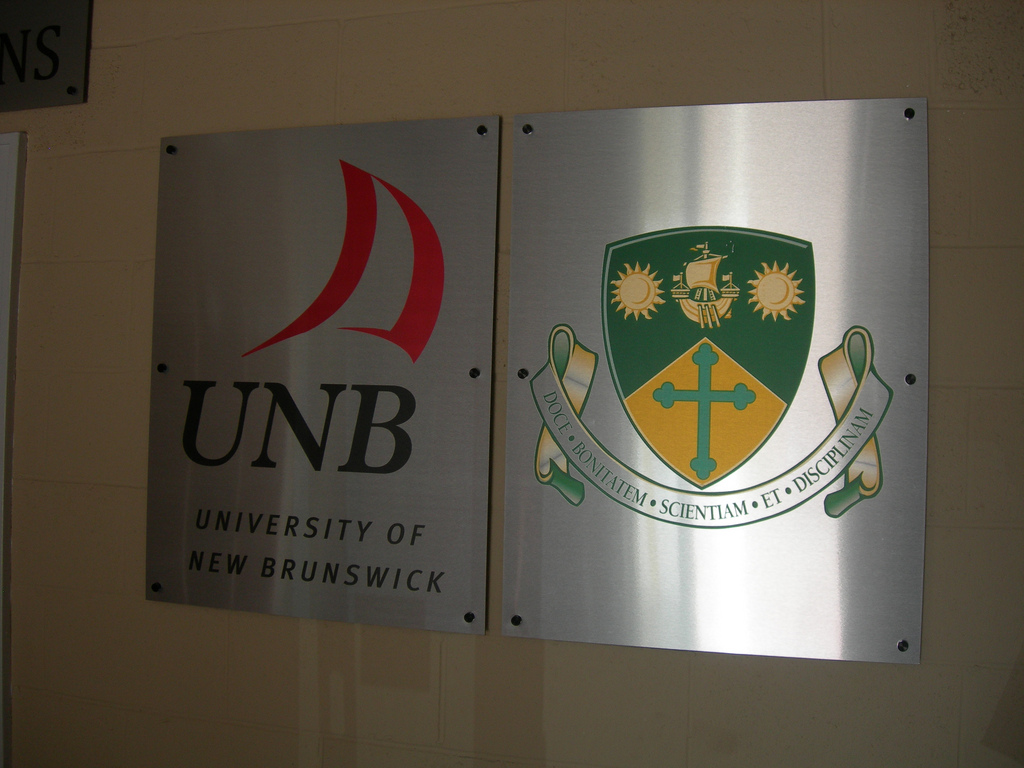Student and teacher unions hope transparency will make salary increases more comparable
Photo by Jimmy Emerson (CC)
FREDERICTON (CUP)—The Federation of New Brunswick Faculty Associations (FNBFA) is likely to pursue court action against the University of New Brunswick, despite the university’s release of president Eddy Campbell’s 2009 and 2014 employment contracts.
Details from Campbell’s contract were posted on the university website and included the president’s $376,471 annual salary and job entitlements.
This action followed a long process of requests by the FNBFA, beginning in 2012 when universities in New Brunswick were made accountable to the Right to Information and Protection of Privacy Act.
The Act, which allows anyone access to the records of public institutions, provided the federation a chance to request copies of university presidents’ contracts.
“We had certainly asked for (copies), but since the laws in New Brunswick were quite different until recently, we didn’t really have any way to pursue the issue,” said Miriam Jones, president of the Association of University of New Brunswick Teachers (AUNBT), a member association of the FNBFA.
“But then when the privacy laws were changed, we started implementing right to information requests on various different matters,” she said.
According to a press release from the federation, the university refused to disclose the requested information.
Kathryn McCain, chair of UNB’s Board of Governors, said in an email that “the university declined because of the privacy provisions concerns under the Right to Information and Protection of Privacy Act.”
Mount Allison University was the only other New Brunswick university to refuse.
Click here for the original story from the Brunswickan
The federation then appealed to the Information and Privacy Commissioner, who ordered the university to release the information. UNB again refused to comply. According to the FNBFA release, their next step was to file a complaint with the court of the Queen’s Bench. The case is scheduled for Jan. 8, 2015.
Although UNB has since disclosed Campbell’s 2009 and 2014 contracts, the full request to release all the presidents’ contracts since 2004 was not fulfilled and the federation still intends to go to court.
“They seem to now have come to the realization that the Court of Queen’s Bench will not side with them on this issue. It is at this juncture that UNB finally goes ahead and releases Campbell’s contracts,” said Jean Sauvageau, president of the FNBFA. “There is nothing proactive about their recent actions.”
Sauvageau said the federation wants contracts from as far as a 10-year period. However, he said the contract disclosure was a step in the right direction.
“It’s a first step and we’re hoping it marks the beginning of an easier time in that direction, trying to get the information from universities about their finances,” he said.
Now that they have it, it is the financial information that the federation intends to focus on. The primary concern that came out of the contracts’ release was the issue of salary comparability, specifically with the rate of increase in the president’s salary.
“The rate of increase for professors versus for university president is nowhere near the same,” Sauvageau said.
“The presidents seem to be able to negotiate a (much) higher rate of increase and sometimes very significant adjustment above and beyond the standard increase.”
Both the FNBFA and the AUNBT are hopeful that having the information made public will level the playing field in salary negotiation.
In Campbell’s 2009 and 2014 contracts posted on the university’s website, it states that the president’s salary will be adjusted annually, by the amount approved by a Board of Governors committee. “In addition and subject to satisfactory performance, the salary also will be adjusted by two per cent annually with effect from each subsequent July 1st,” reads the report.
Campbell began his second five-year term as UNB president in July. The report details that he holds the rank of professor with tenure and is given a $12,000 research grant annually for “ongoing research and scholarship,” among many other benefits.
—With files from Tess Allen (The Brunswickan)





